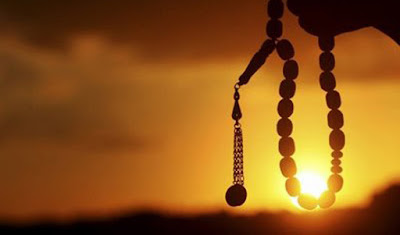Guide on How to Perform Prayer Like Prophet Muhammad PBUH
7th January 2019, 1 Jamadilawal 1440H
How to Perform Prayer Like Prophet Muhammad
It was narrated that Anas bin Malik said:
How to Perform Prayer Like Prophet Muhammad
We came to the Prophet (ﷺ) and stayed with him for twenty days and nights. We were all young and of about the same age. The Prophet (ﷺ) was very kind and merciful. When he realized our longing for our families, he asked about our homes and the people there and we told him. Then he asked us to go back to our families and stay with them and teach them (the religion) and to order them to do good things. He also mentioned some other things which I have (remembered or [??] ) forgotten. The Prophet (ﷺ) then added, "Pray as you have seen me praying and when it is the time for the prayer one of you should pronounce the Adhan and the oldest of you should lead the prayer. [Sahih Bukhari 631 & 7246]
"On the Night of Isra, fifty prayers were made obligatory upon the Prophet. Then it was decreased until it was made five. Then it was called out: 'O Muhammad! Indeed My Word does not change; these five prayers will be recorded for you as fifty.'" [Tirmidhi 213]
the Prophet said: "There is no Salat for the one who does not recite Fatihatil-Kitab." [Tirmidhi 247]
"Allah's Messenger, Abu Bakr, Umar and Uthman opened the Salat with (Al-Hamdu-lillahi rabbil-alamin)." [Tirmidhi 246]
the Prophet said "When the Imam says 'Amin' then (all of you) say 'Amin.' For whoever's 'Amin' concurs with the 'Amin' of the angels, then his past sins will be forgiven." [Tirmidhi 250]
"Allah's Messenger would say the Takbir for every lowering and raising, standing and sitting, and (so did) Abu Bakr and Umar." [Tirmidhi 253]
"Umar bin Al-Khattab [may Allah be pleased with him] said to us: 'The knees are the Sunnah for you, so hold the knees.'" [Tirmidhi 258]
سُبْحَانَ رَبِّيَ الْعَظِيمِ
(Subhana Rabbiyal Azim); "Glorious is my Lord the Magnificent"
سُبْحَانَ رَبِّيَ الأَعْلَى
(Subhana Rabbiyal A'la) "Glorious is my Lord the Most High"
he performed Salat with the Prophet, and that while he was bowing he would say: (Subhana Rabbiyal Azim); "Glorious is my Lord the Magnificent" and while prostrating: (Subhana Rabbiyal A'la) 'Glorious is my Lord the Most High.' And he would not recite an Ayah mentioning mercy, except that he would stop and ask (for mercy), and he would not recite an Ayah mentioning punishment, except that he would stop and seek refuge (with Allah from it). [Tirmidhi 262]
سَمِعَ اللَّهُ لِمَنْ حَمِدَهُ
(Sami Allahi liman hamidal) "Allah listens to those who praise Him."
رَبَّنَا وَلَكَ الْحَمْدُ
(Rabba na lakal-hamd) "O our Lord! And to You is the praise"
مِلْءَ السَّمَوَاتِ وَمِلْءَ الأَرْضِ وَمِلْءَ مَا بَيْنَهُمَا وَمِلْءَ مَا شِئْتَ مِنْ شَيْءٍ بَعْدُ
(mil'as-samawati wa mil'al-ardi wa mil'a ma bainahuma wa mil'a ma shi'ia min shay'in ba'd)
"That fills the heavens and fills the earth, and fills what is between them, and fills whatever there is beyond that You will."
"When Allah's Messenger would raise his head from bowing he would say: (Sami Allahi liman hamidal. Rabba na lakal-hamd, mil'as-samawati wa mil'al-ardi wa mil'a ma bainahuma wa mil'a ma shi'ia min shay'in ba'd) 'Allah listens to those who praise Him. O our Lord! And to You is the praise that fills the heavens and fills the earth, and fills what is between them, and fills whatever there is beyond that You will.' He said: There are narrations on this topic from Ibn Umar, Ibn Abbas, Ibn Abi Awfa, Abu Juhaifa, and Abu Sa'eed. [Tirmidhi 266]
Allah's Messenger said: "When the Imam says: (Sami Allahu liman hamidah) 'Allah listens to those who praise Him. Then (all of you) say: (Rabbana wa lakal-hamd) 'O our Lord! And to You is the praise for whoever's saying concurs with the saying of the angels, then his past sins will be forgiven." [Tirmidhi 267]
his father (Ibn Umar) who said: "I saw Allah's Messenger when he opened the Salat, raising his hands to the level of his shoulders, and (again) when he bowed, and when he raised his head from bowing." In his narration, Ibn Abi Umar added: "And he would not raise them between the two prostrations." [Tirmidhi 255]
What is said in the first tashahhud
It was narrated from 'Abdullah that :
التَّحِيَّاتُ لِلَّهِ وَالصَّلَوَاتُ وَالطَّيِّبَاتُ السَّلاَمُ عَلَيْكَ أَيُّهَا النَّبِيُّ وَرَحْمَةُ اللَّهِ وَبَرَكَاتُهُ السَّلاَمُ عَلَيْنَا وَعَلَى عِبَادِ اللَّهِ الصَّالِحِينَ أَشْهَدُ أَنْ لاَ إِلَهَ إِلاَّ اللَّهُ وَأَشْهَدُ أَنَّ مُحَمَّدًا عَبْدُهُ وَرَسُولُهُ
It was narrated from 'Abdullah that :
The Prophet (ﷺ) said in the tashahhud: "At-tahiyyatu lillahi was-salawatu wat-tayyibat, as-salamu 'alaika ayyuhan-Nabiyyu wa rahmatAllahi wa baraktuhu. As-salamu 'alaina wa 'ala 'ibad illahis-salihin, ashahdu an la illaha ill-Allah wa ashhadu anna Muhammadan 'abduhu wa rasuluhu (Allah compliments, prayers and pure words are due to Allah. Peace be upon you, O Prophet, and the mercy of Allah (SWT) and his blessings. Peace be upon us and upon the righteous slaves of Allah (SWT). I bear witness that none has the right to be worshipped except Allah and I bear witness that Muhammad is His slave and Messenger)." [Sunan An-Nasa'i, Muwatta Malik]
The description of the sitting during the prayer, and how the hands are to be placed on the thighs
'Abdullah b. Umar saw me playing with pebbles during prayer. After finishing the prayer he forbade me (to do it) and said: Do as the Messenger of Allah (ﷺ) used to do. I said: How did Allah's Messenger (ﷺ) do? He said that he (the Messenger of Allah) sat at tashahhud, placed his right palm on the right thigh and closed all his fingers and pointed with the help of finger next to the thumb, and placed his left palm on his left thigh. (Sahih Muslim)
'Abdullah b. Zubair narrated on the authority of his father that when the Messenger of Allah (ﷺ) sat for supplication, i. e. tashahhud (blessing and supplication), he placed his right hand on his right thigh and his left hand on his left thigh, and pointed with his forefinger, and placed his thumb on his (milddle) finger, and covered his knee with the palm of his left hand. (Sahih Muslim)
Where to look when pointing and moving the forefinger
When the Messenger of Allah (ﷺ) sat to say the tashahhud, he placed his left hand on his left thigh and pointed with his forefinger, and his gaze did not go beyond he finger with which he was pointing. (Sunan an-Nasa'i)
What is said in the first tashahhud
التَّحِيَّاتُ الْمُبَارَكَاتُ الصَّلَوَاتُ الطَّيِّبَاتُ لِلَّهِ السَّلاَمُ عَلَيْكَ أَيُّهَا النَّبِيُّ وَرَحْمَةُ اللَّهِ وَبَرَكَاتُهُ السَّلاَمُ عَلَيْنَا وَعَلَى عِبَادِ اللَّهِ الصَّالِحِينَ أَشْهَدُ أَنْ لاَ إِلَهَ إِلاَّ اللَّهُ وَأَشْهَدُ أَنَّ مُحَمَّدًا رَسُولُ اللَّهِ
The Messenger of Allah( may peace be upon him) used to teach us the tashahhud as he would teach us the Qur’an, and would say: The blessed adoration of the tongue, acts of worship (and) all good things are due to Allah. Peace be upon you, O Prophet, and Allah’s mercy and His blessings. Peace be upon us and upon Allah’s upright servants. I testify that there is no god but Allah, and I testify that Muhammad is Allah’s apostle (peace be upon him). [Sunan Abu Daud],
"It is from the Sunnah to say the Tashahhud quietly" (Tirmidhi & Sunan Abi Dawud)
The Messenger of Allah (ﷺ) said: When any one of you completes the last tashahhud. he should seek refuge with Allah from four (trials). I.e. from the torment of Hell, from the torment of grave, from the trial of life and death, and from the mischief of Masih at-Dajjal (Antichrist). This hadith has been narrated by al-Auza'i with the same chain of transmitters but with these words:" When any one of you completes the tashahhud" and he made no mention of the words" the last". (Sahih Muslim)
the Prophet said: "When one of you prostrates, then let him be balanced, and let him not lay his forearms down like the lying of the dog." [Tirmidhi 275]
It was narrated that Anas bin Malik said:
“The Prophet (ﷺ) said to me: ‘When you raise your head from prostration, do not squat like a dog. Put your buttocks between your feet and let the tops of your feet touch the ground.” (Sunan Ibn Majah)
"The Prophet prohibited wearing Qassi, and that which is dyed with safflower, and from the gold ring, and from reciting the Quran while bowing." [Tirmidhi 265]
References:
- Hadith Sahih Bukhari: Book of Actions While Praying, https://sunnah.com/bukhari/21, viewed 7th January 2019.
- Hadith Sahih Muslim: The Book of Prayers, https://sunnah.com/muslim/4, viewed 7th January 2019.
- Hadith Sunan Ibn Majah: Book of Establishing the Prayer and the Sunnah Regarding Them, https://sunnah.com/ibnmajah/5, viewed 8th January 2019.
- Hadith Sunan Ibn Majah: The Book of the Prayer, https://sunnah.com/ibnmajah/2, viewed 8th January 2019.
- Hadith Sunan An-Nasa'i: Book of Salah, https://sunnah.com/nasai/5, viewed 8th January 2019.
- Hadith Sunan Abi Dawud: Book of Prayer (Kitab Al-Salat), https://sunnah.com/abudawud/2, viewed 8th January 2019.
- Hadith Jami` at-Tirmidhi: The Book on Salat (Prayer), https://sunnah.com/tirmidhi/2, viewed 8th January 2019.
- Muwatta Malik: Book of Prayer, https://sunnah.com/malik/3, viewed 10th January 2019.














Comments
Post a Comment